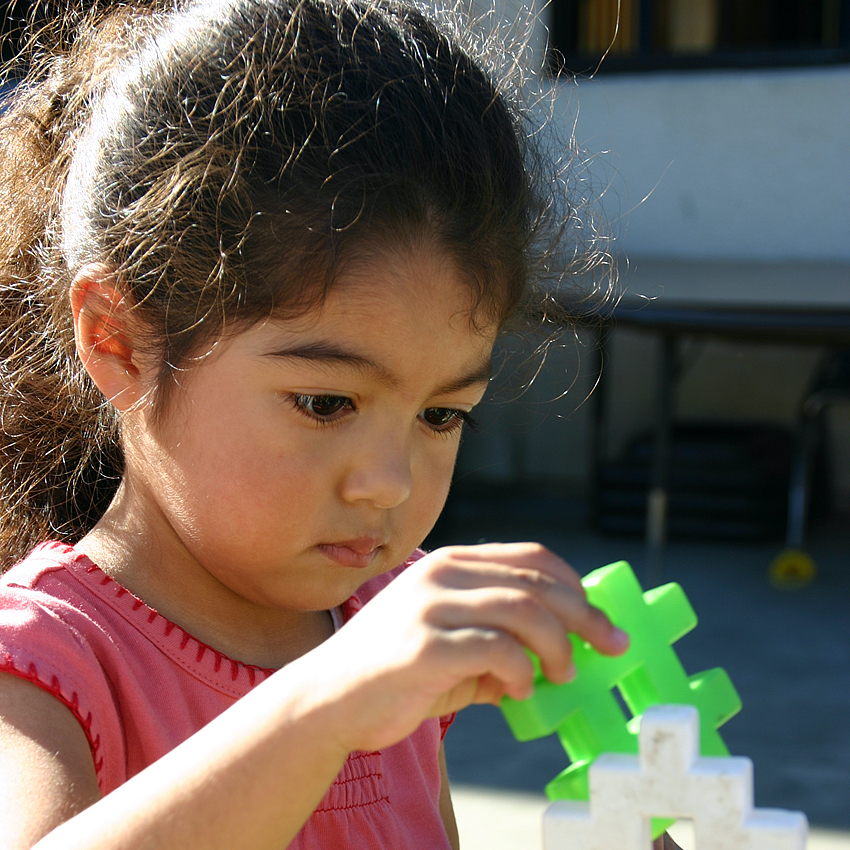
Adults and children are both excellent learners, but they often approach problems in different ways. Adults often prefer to exploit what they already know and be less receptive to radical changes, whereas children seem to be more flexible and open to changing their beliefs. This may also hold when beliefs are highly socially valued.

We have a powerful need to belong that drives many of our prosocial behaviours. Being ostracized from a social group threatens this, and rejection may prompt us to seek acceptance wherever it is offered. This could serve as a powerful motivation for us to change our behaviours, beliefs, desires, and even identities, leading to phenomena such as belief polarization and ideological radicalization.
Note: Asterisks represent equal contribution between authors. Italics represent undergraduate mentee at time of research.
Gelpí, R., & Buchsbaum, D. (under review). Children as cultural explorers: How imitation, pedagogy, and selective trust prepare children for learning in the cultural niche.
Blackburn, A. N.*, Han, H.*, Gelpí, R., Stöckli, S., Jeftic, A., Ch'ng, B., Koszałkowska, K., Lacko, D., Milfont, T. L., Lee, Y., The COVIDiSTRESS II Consortium, & Vestergren, S. (under review). Mediation analysis of conspiratorial thinking and anti-expert sentiments on vaccine willingness. https://doi.org/10.31234/osf.io/yseqz
Gelpí, R.*, Tang, Y.*, & Cunningham, W. A. (in press). Informational trade-offs of learning from expert demonstration. In Proceedings of the 20th International Conference on Cognitive Modeling.
Gelpí, R., Allidina, S., Hoyer, D., & Cunningham, W. A. (2022). The labelled container: Conceptual development of social group representations. Behavioral and Brain Sciences, 45, e108. https://doi.org/10.1017/S0140525X21001412
Blackburn, A. M., Vestergren, S., & The COVIDiSTRESS II Consortium (including Gelpí, R.). (2022). COVIDiSTRESS diverse dataset on psychological and behavioural outcomes one year into the COVID-19 pandemic. Scientific Data, 9, 331. https://doi.org/10.1038/s41597-022-01383-6
Rachev, N. R.*, Han, H.*, Lacko, D.*, Gelpí, R.*, Yamada, Y., & Lieberoth, A. (2021). Replicating the “Disease” framing paradigm during the 2020 COVID-19 pandemic: A study of stress, worry, trust, and choice under risk. PLOS ONE. https://doi.org/10.1371/journal.pone.0257151
Prystawski, B., Gelpí, R., Lucas, C. G., & Buchsbaum, D. (2021). Modelling recognition in human puzzle solving. In Proceedings of the 43rd Annual Meeting of the Cognitive Science Society (pp. 1907–1913).
Gelpí, R., Saxena, N., Lifchits, G., Buchsbaum, D. & Lucas, C. G. (2021). Sampling heuristics for active function learning. In Proceedings of the 19th International Conference on Cognitive Modeling (pp. 80–86).
Lieberoth, A., Lin, S.-Y., Stöckli, S., Han, H., Kowal, M., Gelpí, R., Chrona, S., Tran, T. P., Jeftic, A., Rasmussen, J., Cakal, H., Milfont, T. L., & The COVIDiSTRESS Global Survey Consortium (2021). Stress and worry in the 2020 coronavirus pandemic: Relationships to trust and compliance with preventive measures across 48 countries. Royal Society Open Science, 8, 200589. https://doi.org/10.1098/rsos.200589
Yamada, Y., Ćepulić, D. B., Coll-Martín, T., Debove, S., Gautreau, G., Han, H., Rasmussen, J., Tran, T. P., Travaglino, G. A., The COVIDiSTRESS Global Survey Consortium (including Gelpí, R.), & Lieberoth, A. (2021). COVIDiSTRESS Global Survey dataset on psychological and behavioural consequences of the COVID-19 outbreak. Scientific Data, 8, 3. https://doi.org/10.1038/s41597-020-00784-9
Gelpí, R., Cunningham, W. A., & Buchsbaum, D. (2020). Belief as a non-epistemic adaptive benefit. Behavioral and Brain Sciences, 43, e36. https://doi.org/10.1017/S0140525X19002206
Gelpí, R., Prystawski, B., Lucas, C. G., & Buchsbaum, D. (2020). Incremental hypothesis revision in causal reasoning across development. In Proceedings of the 42nd Annual Meeting of the Cognitive Science Society (pp. 974–980).
Durgin, F. H., & Gelpí, R. (2017). When do vehicles of similes become figurative? Gaze patterns show that similes and metaphors are initially processed differently. In Proceedings of the 39th Annual Meeting of the Cognitive Science Society (pp. 1967–1972).